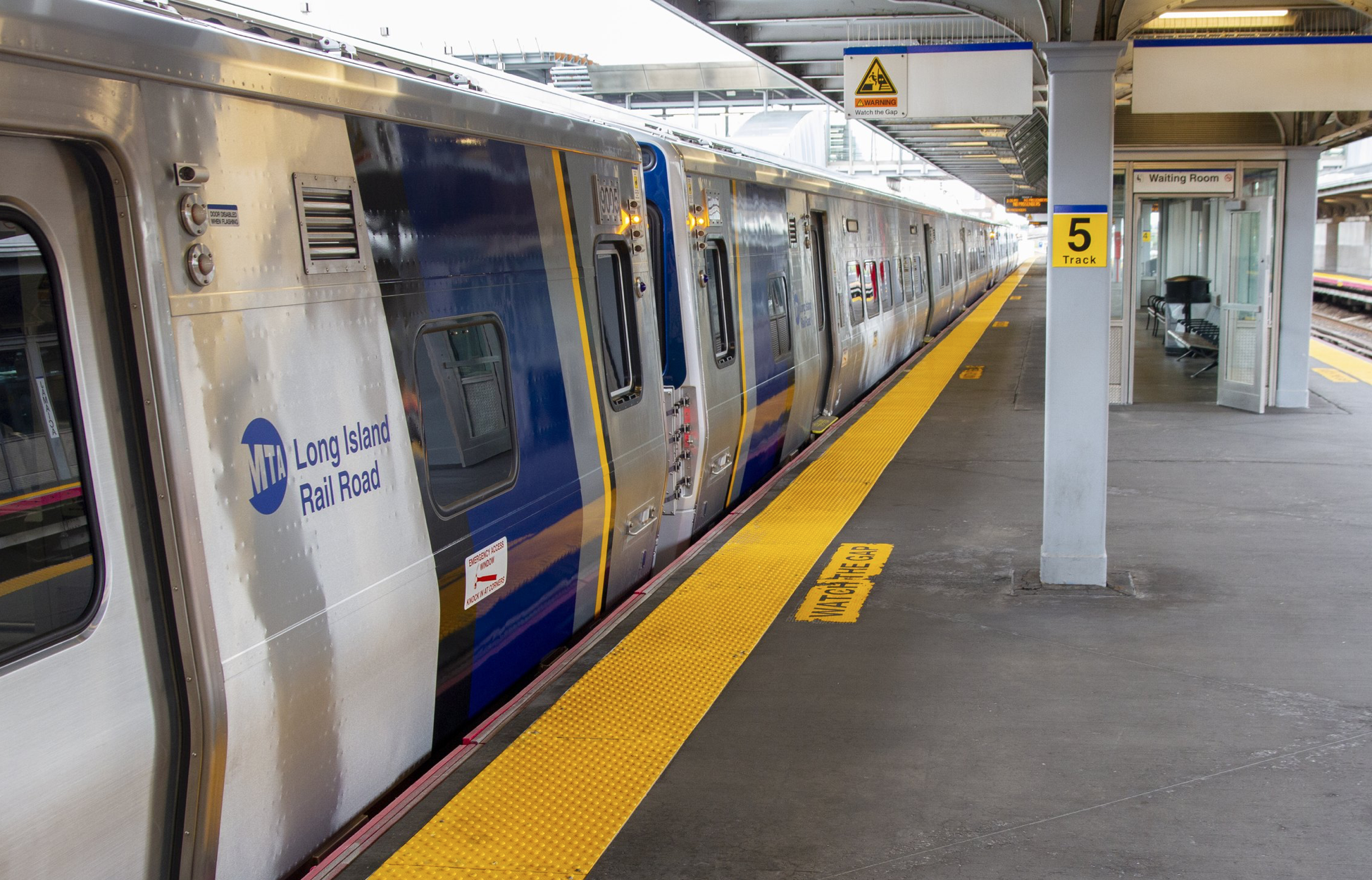Is this the end of the line for the Atlantic Ticket?
The discount fare that offers $5 commuter rail trips and a free subway or bus transfer for riders going between Atlantic Terminal and LIRR stations in southeast Queens and Brooklyn could be on the way out, a top transit official said this week.
MTA officials on Monday floated plans to raise subway and bus fares from $2.75 to $2.90, along with the proposal to establish a peak-hour fare for City Ticket, an entirely different discount program that allows off-peak commuter rail travel within New York City for a flat fee of $5.
A new peak hour City Ticket will cost $7 when officially introduced later this year, MTA Deputy CFO Jai Patel told authority board members on Monday. That presents an opportunity to decide what to do with the somewhat redundant Atlantic Ticket, which has heretofore been treated as a pilot, Patel said.
"The decision is to keep [Atlantic Ticket] as a pilot or eliminate it," said Patel. "With the expansion of the City Ticket for peak and off-peak, it's a good idea to maybe unwind the Atlantic Ticket as we're providing the City Ticket at all times of the day and week."
But while the City Ticket and Atlantic Ticket are similar, there are subtle differences between the two that make killing the latter complicated.
Launched in 2018, Atlantic Ticket is a pilot program that offers riders a $5 option to ride the LIRR between southeast Queens and Brooklyn to Atlantic Terminal, peak or off-peak.
Riders who buy a $60 weekly Atlantic Ticket also get a weekly MetroCard, allowing for a seamless, free transfer to the bus or subway when they get off the LIRR.
The City Ticket has institutional support from the MTA itself, as well as Gov. Kathy Hochul, Mayor Eric Adams, and various machers who put together the "New New York" plan that endorsed the expansion of that deal. Atlantic Ticket, in contrast, has been something of a forgotten child. Advocates had to beg the MTA to keep the option alive in 2020, just two years after the agency created it.
Atlantic Ticket is also only available for purchase at vending machines at eligible stations, whereas City Ticket can be purchased on the MTA TrainTime app.
Unsurprisingly, then, the Atlantic Ticket has not been a big seller: The MTA sold just 723 tickets between February and May in 2022, the last time the MTA publicly revealed data about the program.
The MTA has also so far resisted calls to expand the Atlantic Ticket to a systemwide combo that the Permanent Citizens Advisory Committee to the MTA has dubbed "Freedom Ticket."
With "Freedom Ticket," any intracity commuter rail trip would be covered by a $5 fare, and also come with a free bus or subway transfer.
"We think it would be a mistake to get rid of the weekly option," said Lisa Daglian, the executive director of the PCAC. "We agree that there's no harm, no foul in rolling Atlantic Ticket into City Ticket, since it's broader, but the weekly option is something that should be expanded."
Normal weekly or monthly commuter rail passes can be used on both peak and off-peak hours with no problem, Daglian said, so the MTA should have no problem determining a price point that would work for a weekly City Ticket with the same functionality as a weekly Atlantic Ticket.
The MTA, however, doesn't seem interested in the idea. On Monday, when Board member Andrew Albert suggested it would be "a big mistake" if the MTA completely got rid of the Atlantic Ticket's free bus or subway transfer without a replacement, Patel and CFO Kevin Willens both let the comment go unanswered.
On Wednesday, MTA Chairman Janno Lieber was noncommittal about the future of the free transfer, but suggested it was too big a financial burden to for the recently bailed-out transit authority.
"We are looking at that one unique feature on the Atlantic branch, because we're trying to have a program that's universalized, so we're taking a look at it," Lieber said.
"We're not looking for ways to at this point to spend a ton more money given the budget constraints that we still are operating in."
The MTA declined to reveal how many single ride and weekly Atlantic Tickets were sold each year from 2019 to 2022.






